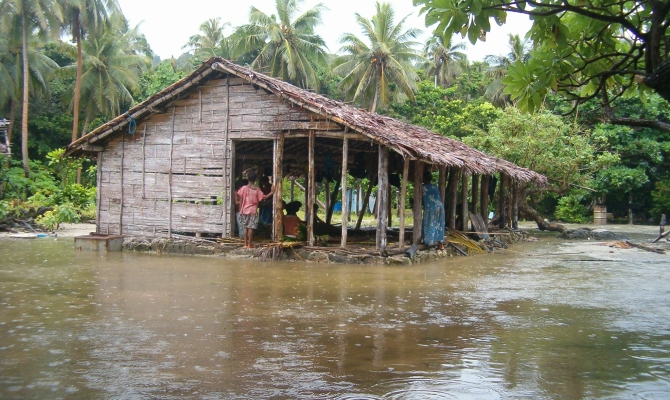Climate change has radically impacted the basic human rights of ni-Vanuatu people, and the international community must urgently implement its mitigation and finance obligations towards Vanuatu and other most-affected countries that have contributed least to the climate crisis, a UN expert said today.
In a statement at the end of her visit to Vanuatu, Elisa Morgera, the Special Rapporteur on the promotion and protection of human rights in the context of climate change, reflects on the compounding human rights impacts of loss and damage to health, food and water systems, housing, education, vital infrastructure, cultural heritage and ecosystem services due to more frequent and devastating cyclones and flash floods in the country in the last 10 years.
She also heard stories of loss of territory and damage to cultural practices and burial grounds due to sea-level rise.
“As Vanuatu is experiencing damage to its tourism industry, which its economy is highly dependent on, the Government is forced to spend most of its national budget on responding to climate impacts, at the expense of spending on health and education,” Morgera said.
The Special Rapporteur’s visit came at a historical time, as Vanuatu opened oral hearings for the International Court of Justice’s advisory proceedings on States’ climate change obligations, and in the wake a largely unsuccessful COP29.
“Vanuatu should be commended for its multi-faceted international leadership to elicit more effective and fair international climate responses, to the benefit of everyone’s human right to a clean, healthy and sustainable environment,” Morgera said.
The Special Rapporteur underscored the role of the World’s Court in recognising the full range of existing international obligations of high-emitting States to prevent further transboundary environmental harm and human rights violations arising from climate change, taking into account historical responsibilities and capabilities.
She also called on the Court to clarify the legally binding nature of international norms on providing funding in adequate quantity and modalities to protect human rights from foreseeable climate impacts.
The UN expert’s visit also identified how Vanuatu should strengthen its human rights-based approach to climate action, considering the disproportionate climate impacts on children and persons with disabilities and on gender-based violence.
“The Government should assess whether domestic and international support is fairly distributed among urban and rural communities across the country, avoiding retrogression on LGBTQI+ persons’ human rights, and establishing a National Human Rights Institution to independently hear and address concerns from human rights holders.”
Morgera also called on international partners to ensure human rights protection in their climate-related support, prioritise community-led initiatives that set their own priorities, and centre action on Indigenous knowledge, cultural heritage and arts-based approaches.
“This can support complex but potentially transformative conversations on a human rights-based approach to climate change that is fit for the diverse local context of Vanuatu’s 80 islands and over 100 languages,” she said.
The full report of the expert’s visit will be presented to the 59th session of the UN Human Rights Council in July 2025.













